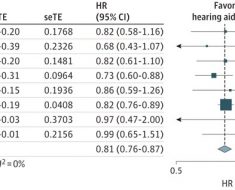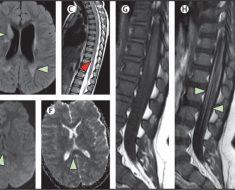
Men with stable coronary artery disease who are on Viagra due to impotence seem to live longer and have a lower risk of experiencing a new heart attack, a study from Karolinska Institutet in Sweden published in the Journal of the American College of Cardiology reports.
Impotence can be an early warning sign of cardiovascular disease in healthy men and is treated either locally with alprostadil, which dilates the blood vessels so that the penis stiffens, or with so-called PDE5 inhibitors, such as Viagra or Cialis, which are taken in tablet form orally before sex, inhibiting the enzyme phosphodiesterase5 (PDE5) in the penis to increase the blood flow.
Since PDE5 inhibitors decrease blood pressure, they were previously not recommended for men with coronary artery disease due to the risk of heart attack.
However, in 2017 Martin Holzmann and colleagues showed that men who have had a heart attack tolerate the drug well and that it even prolongs life expectancy and protects against new infarctions and heart failure.
In their new study, the researchers sought to compare the effect of alprostadil and PDE5 inhibitors in men with stable coronary artery disease. The patients were to have had either an infarction, balloon dilation or a coronary artery bypass surgery at least six months before the onset of treatment for erectile dysfunction.
“The risk of a new heart attack is greatest during the first six months, after which we consider the coronary artery disease to be stable,” says lead author Martin Holzmann, adjunct professor at the Department of Medicine, Solna, Karolinska Institutet.
The registry study comprised 16,500 men treated with PDE5 inhibitors and just under 2,000 who received alprostadil. The data was collected from the patient, drug and cause of death registries.
The study shows that the men who received PDE5 inhibitors lived longer and had a lower risk of new heart attack, heart failure, balloon dilation and bypass surgery than those who received alprostadil. The protection was dose-dependent, so that the more frequent the dose of PDE5 inhibitor, the lower the risk.
“This suggests that there’s a causal relationship, but a registry study can’t answer that question,” Holzmann says. “It is possible that those who received PDE5 inhibitors were healthier than those on alprostadil and therefore had a lower risk. To ascertain whether it is the drug that reduces the risk, we would need to randomly assign patients to two groups, one that takes PDE5 and one that doesn’t. The results we have now give us very good reason to embark on such a study.”
As PDE5 inhibitors are available by prescription only in Sweden, they cannot be bought over the counter, but Holzmann hopes that men with coronary artery disease do not shy away from addressing the matter with their doctor.
Source: Read Full Article





